Books round-up: October
Friday, October 31st, 2014 08:02 pm82.
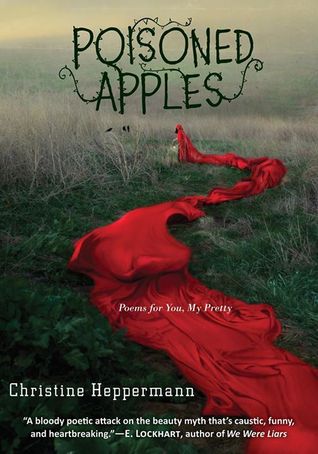
Heppermann, Christine: Poisoned Apples: Poems for You, My Pretty
Feminist fairy tale poetry, a really enjoyable combination. The subjects often address issues of body image and self-worth as well as eating disorders, sometimes a little unsubtle, often times enjoyable through the lens of fairy tales. Some experiences are too US America specific to resonate with me, others seem truly universal.
81.

Abedi, Isabel: Isola
Only read this book if its in your library, or don't, because you already know it and the cardboard characters never really come to life.( Read more... )
80.
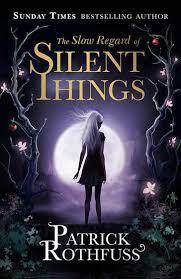
Rothfuss, Patrick: The Slow Regard of Silent Things
More later, I have to reread this a couple of times to savour it. For now: The only thing that spoiled my reading experience of this beautiful volume was the author's constant need to apologise for this story which isn't run-off-the-mill and normal. This is incredible to me, and wrong - more of an apology would be needed for a story that is yet again the same as any other story.
This wasn't, and it was beautiful. I could have done without the frame story of Auri waiting for Kvothe, as I'd have loved to hear more about her time before the beginning of the plot of the Kingkiller Chronicle and her relationship with the masters. As it is, it remains a charming and saddening insight into her wonderous world in the belly of the university.
79.

Snicket, Lemony: Shouldn't You be in School?
I really enjoy this new series, though not as much as I did the ASoUE.
78.

Jung, Marius: Singen können die alle!: Handbuch für Negerfreunde
Sometimes cynical, sometimes funny account of racism in Germany by a black comedian. He talks about his youth growing up as the black child of white middle class parents, his experiences as an actor in a country that still doesn't really realise not all of its inhabitants are whitee and white wannabe saviours.
I don't agree with the fact that political correctness is a bad thing, though I agree that it should not be the only underlying reason for changing one's behaviour.
77.

Harris, Joanne: Gospel of Loki
I like this modern version of the Lokabrenna, which works as a prequel to Runemarks, though some details are different. The contemporary phrases that crop up annoyed me vaguely to the and I didn't see their point. They didn't endear the characters to me, if that was the idea.
Loki is as entertaining and human and as a prequel he couldn't have been much different, though I'd really like to see a Loki that does not suffer from this civilising softening. It makes us understand the characters as humans, but in their original context they were different, revered as forces of nature and arbiters of life a and death. they were also human, of course, but they were still fundamentally different. The difference seems to have home lost and turns gods into powerful mortals, superheroes. In the words of the novel, named and tamed.
76.
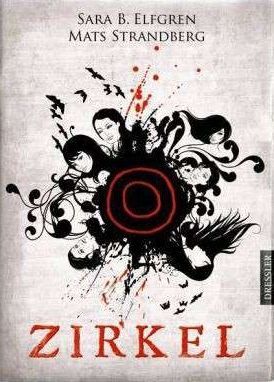
Strandberg, Mats; Bergmark Elfgren, Sara: Zirkel
This is the first book in a long, looong time that I found that is:
1.) centred more or less exclusively on female teenaged characters,
2.) whose main plot isn't a love plot,
3.) who don't get raped.
( Read more... )
75.

Elsberg, Marc: Zero
The book seems more hurried and breathless than
his last one and less convincing. It is still an entertainingly fast-paced thriller, but the plot has its holes. Especially the random underground chases in Vienna and New York were too much, and while the concerns it raises about tech and choice are valid, it doesn't always do that in a very subtle way. I am also not overly keen on the ableism and the way neuroatypical people are portrayed here.
74.

Carey, Jaqueline: Kushiel's Dart
I really enjoyed this book, and the world, and the fact that there was not as much slut-shaming and whorephobia as might have been expected in a book in which the main protagonist is a prostitute. The world's religious system is believable and interesting and the characters lovable. I don't recall it passing the Bechdel test, but there are several strong female characters and some of them are queer.
I did not like that there are no romantic relationships between women, hardly any sadistic or dominant women, no sadistic/dominant women who aren't evil, no romantic relationships that aren't heterosexual. One toe outside the box and then straight back in
73.

Boie, Kirsten: Ringel, Rangel, Rosen
( Read more... )
72.
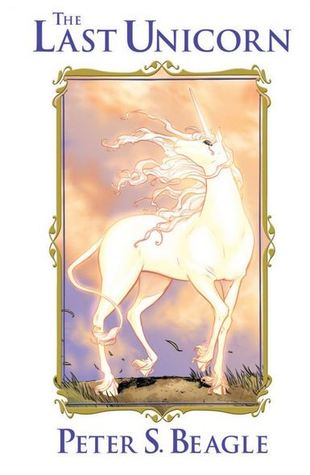
Beagle, Peter S.; Gillis, Peter; De Liz, Renae; Dillon, Ray: The Last Unicorn
I have to admit that I've only read the book two or three times and have seen the movie version so often that I have no memory of how well the book version translates into the movie, which is one of my favourites. So I was not so much worried about the book as I was about my memories of the movie, but it translates, as I suppose this book does into all possible media. The short passages of text seem well-chosen, although as I mentioned I don't remember the text well-enough to judge, but my gut says they are.
The artwork is stunningly beautiful and I could stare at some of those panels for hours. The one thing that bugged me was that Schmendrick and Molly have undergone a serious makeover and the way the human unicorn looks is scary because she is so thin.
71.

Brosgol, Vera: Anya's Ghost
I heard from this via Graphic Novels 4 Girls and really liked it. Anya and the difficulties she faces as a Russian immigrant ring true, although it is strange to me that she doesn't speak Russian at home, though I do understand that would be inconvenient for story purposes. I'd have liked seeing more interactions between Siobhan and Anya, but I can see that it wouldn't have fit into this very compact tale.
I was also positively surprised by this graphic novel as a graphic novel - it's good to see that there are diverse and positive role-models for younger girls at least, even though I find it hard to see the same applying to the "mature" end of this genre, which features gratuitous boob and gore panels more than truly mature topics.
70.
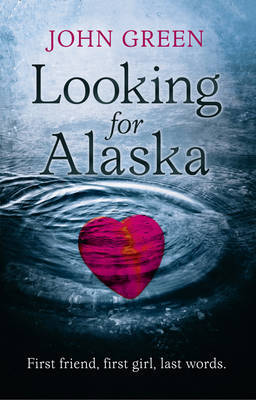
Green, John: Looking for Alaska
The over-the-top love that my students have for this book shows me that I'm probably missing out. But I just don't understand it. I see very interchangeable, uninteresting characters involved in things that I, as a teenager, would have had no interest or part in in their situation because it seems designed to make things worse for them (no matter how bored or depressed, taking up drinking and smoking was never that attractive to me). Though the signs of characters' mental health issues are there in places, they don't ring true to me. The romance plot is superficial and only shows once more how mundanely boring "Pudge" is.
69.

König, Tim: Ich bin ein Kunde, holt mich hier raus
I'm so embarrassed to have read that, even though I did get the audiobook at a very reduced price. It's really bad.
( Read more... )
68.

Pratchett, Terry: Dragons at Crumbling Castle.
Adorable short stories presented in a way that I can see children liking as much as adult fans.

Heppermann, Christine: Poisoned Apples: Poems for You, My Pretty
Feminist fairy tale poetry, a really enjoyable combination. The subjects often address issues of body image and self-worth as well as eating disorders, sometimes a little unsubtle, often times enjoyable through the lens of fairy tales. Some experiences are too US America specific to resonate with me, others seem truly universal.
81.

Abedi, Isabel: Isola
Only read this book if its in your library, or don't, because you already know it and the cardboard characters never really come to life.( Read more... )
80.

Rothfuss, Patrick: The Slow Regard of Silent Things
More later, I have to reread this a couple of times to savour it. For now: The only thing that spoiled my reading experience of this beautiful volume was the author's constant need to apologise for this story which isn't run-off-the-mill and normal. This is incredible to me, and wrong - more of an apology would be needed for a story that is yet again the same as any other story.
This wasn't, and it was beautiful. I could have done without the frame story of Auri waiting for Kvothe, as I'd have loved to hear more about her time before the beginning of the plot of the Kingkiller Chronicle and her relationship with the masters. As it is, it remains a charming and saddening insight into her wonderous world in the belly of the university.
79.

Snicket, Lemony: Shouldn't You be in School?
I really enjoy this new series, though not as much as I did the ASoUE.
78.

Jung, Marius: Singen können die alle!: Handbuch für Negerfreunde
Sometimes cynical, sometimes funny account of racism in Germany by a black comedian. He talks about his youth growing up as the black child of white middle class parents, his experiences as an actor in a country that still doesn't really realise not all of its inhabitants are whitee and white wannabe saviours.
I don't agree with the fact that political correctness is a bad thing, though I agree that it should not be the only underlying reason for changing one's behaviour.
77.

Harris, Joanne: Gospel of Loki
I like this modern version of the Lokabrenna, which works as a prequel to Runemarks, though some details are different. The contemporary phrases that crop up annoyed me vaguely to the and I didn't see their point. They didn't endear the characters to me, if that was the idea.
Loki is as entertaining and human and as a prequel he couldn't have been much different, though I'd really like to see a Loki that does not suffer from this civilising softening. It makes us understand the characters as humans, but in their original context they were different, revered as forces of nature and arbiters of life a and death. they were also human, of course, but they were still fundamentally different. The difference seems to have home lost and turns gods into powerful mortals, superheroes. In the words of the novel, named and tamed.
76.

Strandberg, Mats; Bergmark Elfgren, Sara: Zirkel
This is the first book in a long, looong time that I found that is:
1.) centred more or less exclusively on female teenaged characters,
2.) whose main plot isn't a love plot,
3.) who don't get raped.
( Read more... )
75.

Elsberg, Marc: Zero
The book seems more hurried and breathless than
his last one and less convincing. It is still an entertainingly fast-paced thriller, but the plot has its holes. Especially the random underground chases in Vienna and New York were too much, and while the concerns it raises about tech and choice are valid, it doesn't always do that in a very subtle way. I am also not overly keen on the ableism and the way neuroatypical people are portrayed here.
74.

Carey, Jaqueline: Kushiel's Dart
I really enjoyed this book, and the world, and the fact that there was not as much slut-shaming and whorephobia as might have been expected in a book in which the main protagonist is a prostitute. The world's religious system is believable and interesting and the characters lovable. I don't recall it passing the Bechdel test, but there are several strong female characters and some of them are queer.
I did not like that there are no romantic relationships between women, hardly any sadistic or dominant women, no sadistic/dominant women who aren't evil, no romantic relationships that aren't heterosexual. One toe outside the box and then straight back in
73.

Boie, Kirsten: Ringel, Rangel, Rosen
( Read more... )
72.

Beagle, Peter S.; Gillis, Peter; De Liz, Renae; Dillon, Ray: The Last Unicorn
I have to admit that I've only read the book two or three times and have seen the movie version so often that I have no memory of how well the book version translates into the movie, which is one of my favourites. So I was not so much worried about the book as I was about my memories of the movie, but it translates, as I suppose this book does into all possible media. The short passages of text seem well-chosen, although as I mentioned I don't remember the text well-enough to judge, but my gut says they are.
The artwork is stunningly beautiful and I could stare at some of those panels for hours. The one thing that bugged me was that Schmendrick and Molly have undergone a serious makeover and the way the human unicorn looks is scary because she is so thin.
71.

Brosgol, Vera: Anya's Ghost
I heard from this via Graphic Novels 4 Girls and really liked it. Anya and the difficulties she faces as a Russian immigrant ring true, although it is strange to me that she doesn't speak Russian at home, though I do understand that would be inconvenient for story purposes. I'd have liked seeing more interactions between Siobhan and Anya, but I can see that it wouldn't have fit into this very compact tale.
I was also positively surprised by this graphic novel as a graphic novel - it's good to see that there are diverse and positive role-models for younger girls at least, even though I find it hard to see the same applying to the "mature" end of this genre, which features gratuitous boob and gore panels more than truly mature topics.
70.

Green, John: Looking for Alaska
The over-the-top love that my students have for this book shows me that I'm probably missing out. But I just don't understand it. I see very interchangeable, uninteresting characters involved in things that I, as a teenager, would have had no interest or part in in their situation because it seems designed to make things worse for them (no matter how bored or depressed, taking up drinking and smoking was never that attractive to me). Though the signs of characters' mental health issues are there in places, they don't ring true to me. The romance plot is superficial and only shows once more how mundanely boring "Pudge" is.
69.

König, Tim: Ich bin ein Kunde, holt mich hier raus
I'm so embarrassed to have read that, even though I did get the audiobook at a very reduced price. It's really bad.
( Read more... )
68.

Pratchett, Terry: Dragons at Crumbling Castle.
Adorable short stories presented in a way that I can see children liking as much as adult fans.






















 ♥
♥









